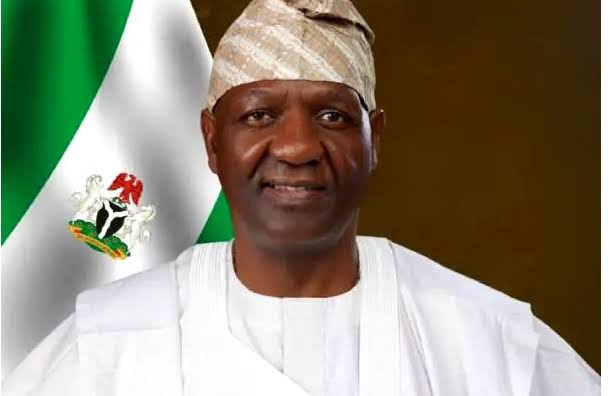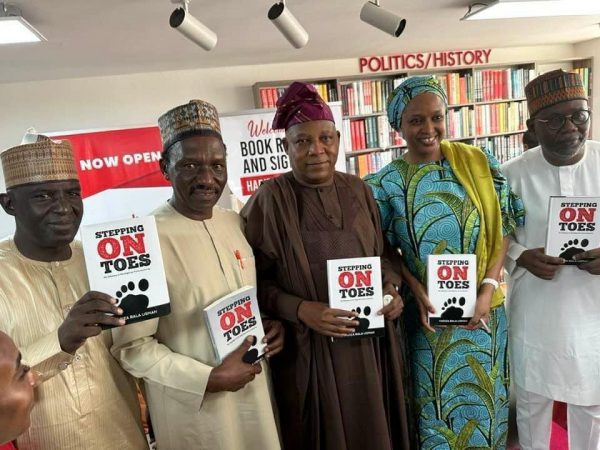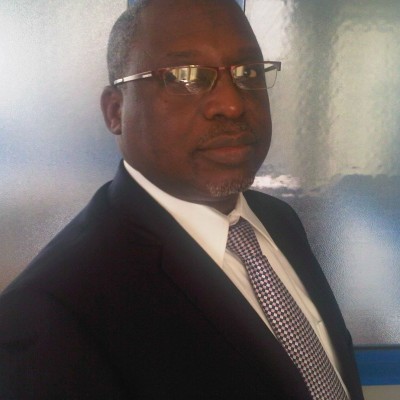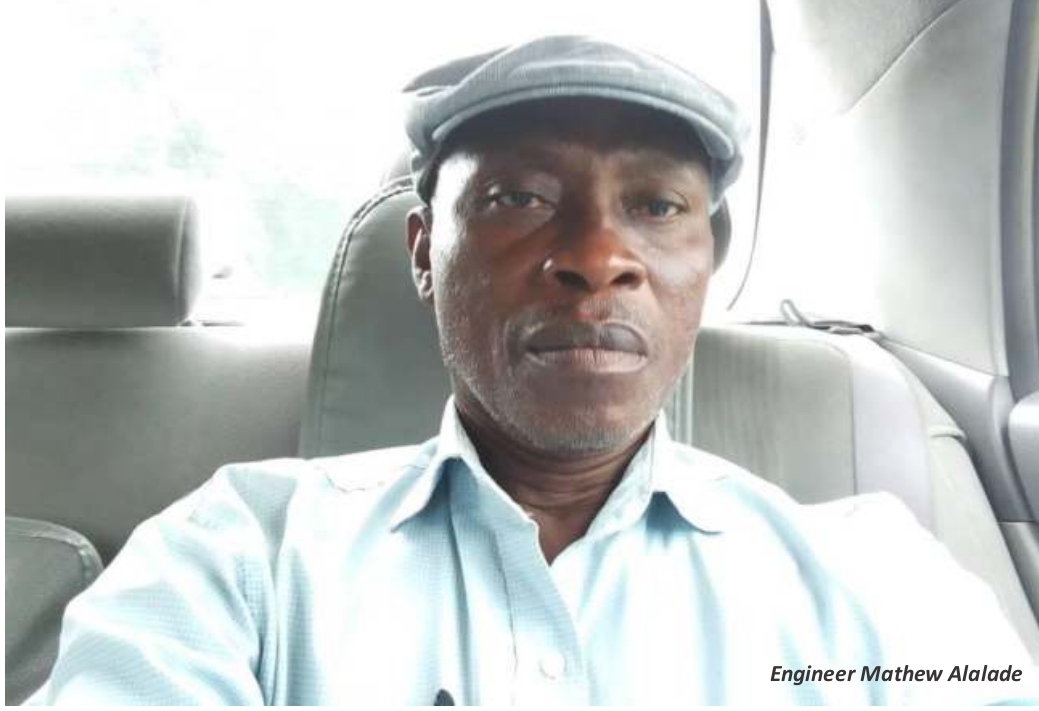We Have Developed Sustainable Funding Sources For SMEs Now – DG, SMEDAN
By Genevieve Aningo

Mr. Olawale Fasanya is the Director-General and Chief Executive Officer of Small and Medium Enterprise Development Agency of Nigeria(SMEDAN). In this interview hosted in the agency’s site but transcribed by MMS Plus, the Director General speaks on the challenges of SMEs in Nigeria, and how SMEDAN since founded has been focused on up-scaling businesses, while providing funding sources in partnership with commercial and specialized banks. He harps on capacity development for growing businesses and start-up, saying most people invest in business on perception. However, SMEDAN is better poised now to assist businesses with a menu of new initiatives. Excerpt.
Take us through the process of how you have been one of the pioneers of SMEDAN and how you have built the Agency.
The agency came into being in 2003 with an Act of the National Assembly. The agency was set up primarily to develop MSMEs, in every segment and prior to the emergence of SMEDAN, there had not been any agency that was in charge of coordinated approach to SMEs development. When we came onboard, the Act says the agency should be called (SMIDAN) Small and Medium Industry Development Agency of Nigeria but when we came on board we found that if you just say industry you have to look at the commerce. To make it more encompassing we changed the name to Small and Medium Enterprises Development Agency of Nigeria as it is in some other parts of the world. I was part of it when it started; just three or four of us. We started in one room on a table like this. We have been able to grow it to what it is today. The initial approach is to provide business information so we started to go to the 36 states to sensitize governors on the need for them to embrace SMEs development because going by our initial statistics we found out that the economy is actually running on SMEs because if you look at the population of large businesses in Nigeria, they are not up to 1million. So when we had the survey that says we have 41.5 million SMEs in Nigeria and out of that 41.5 million, the total number of even small businesses is not up to 2 million. The rest are micro small businesses.
The agency now has the mandate to make sure we now uphold the number of these small businesses and majority of them operate informally. What we even started doing is to see how many of them are formalized. So we tried to move them from informality to formal especially the micro businesses.
Along the line we found that when you say micro business, those that have businesses that employ up to 9 persons show ,and that it is too elastic for small businesses so we then came up with what is called Nano business, which is one man business, because they are also in majority. These are businesses which just employ just 1 person plus themselves, they set up businesses that the owner employ 1 or 2 people, that is, we now separated it and called it Nano businesses different from micro.
Also, when we came on board, the initial thinking of everybody that is in business is that the problem is fund but people don’t think it is not just about money , you need to build your capacity to run your business. Most people start business and they fold up fast. People are retired, they get their pension they see their neigbours running a bakery, they also want to start a bakery because they see riding a car, they don’t know if it’s the children that sent the car.
So most Nigerians do business by perception. We want to fill that gap and engage more on building capacities, to providing business development support service and a host of other business formation for people to start their businesses.
We also started in our offices what we call business clinic, so you can walk in and talk to us so that we can shape your mind towards a particular business. Or, if you are already running a business, you can come in and we diagnose the problem and proffer solution. It is been a problem, because most times we build people’s capacity they are not able to access fund; so it’s a major issue. So along the line we then started thinking of programmes that can be inclusive of a little funding and capacity building. In recent times, we have to roll out programmes like conditional grant scheme where we assist the Nano business with little fund, or grant maybe not more than 50,000 to 100,000 thousand would go a long way for a one man business.
We have the matching fund programme, where we match fund with funding agencies like banks, sometimes we bring some money and they also merge with us and we now dictate the interest and write the interest from our own counter font point. We started this about three years now and we are concentrated on agric business
As an agric business owner, you can access between 2. 5 to 5 million to inject into your business. We have very minimal interest maybe maximum 6 percent. We still run on government provisions. Our foundation is solely founded on government. So we don’t have big money to put but we have been able to pull about 500,000,000 ( five hundred million Naira) this year. The banks we are merging funds with are Bank of Agriculture, Fidelity Bank, Jaiz bank.
Are there initiatives that you intend to carry out as DG SMEDAN?
Over time, we now know where the shoe pitches small businesses. One of the major thing is capacity but now we don’t want to continue doing just class room kind of training. What I intend to put a lot of emphasis is to upgrade my staff and we are currently training them to provide advisory services. A lot of people out there are doing their business but they don’t have the prerequisite knowledge. So we go and make sure we send out our staff , they would now be like extension officers to visit businesses and ask you questions; give solutions and advice . It goes a long way. If we discover that your problem is funding, we identify a funding agent. Apart from the matching fund, before the end of the year, we want to experiment with micro finance institutions. We have subscribers from the private sectors, some BMOs like Association of Women Enterprise , Nigerian Association of Small and Medium Enterprises(NASME). When we are eventually ready, it is just for us to finalize the license with the Central Bank of Nigeria and these we would do in the next few weeks so that we can also fund and when we take off we can also get some international funders to help us capitalize the banks. We are also talking with CBN, to see what we can do together to make sure we can fill the gaps of access to funds. We are also training our staff to be able to assist SMEs, put together bankable business plans. Most times, this is the problem; most of them don’t really know what to do.
We are approaching some states to start what we call BDF volunteers that we would train. If a state government is ready to get some youths together to train them, we are asking government to pay them some stipends because that would not come from us; it is a way of taking the youths out of the streets. They too would be complementing us by going to provide advisory business to SMEs.
We also know a lot of SMEs, don’t know where to practice what they know. They find it difficult to get work space. We have 23 industrial development centers scattered all over the country. We intend to use industrial development centers to provide work space for as many SMEs they can take. Some of them (IDC) have a land base of about 25hectares and we have not been able to put them to use. So I want to direct my energy to make sure we allocate them to SMEs. Let them lean so that they can have work space.
Within those IDCs, we would bring in regulatory agencies like NAFDAC and other agencies that have one thing to do with SMEs. We also intend to work with the sciences and technology, to have incubation centers within those IDCs so that you can incubate your business and practice it there. We also have innovations hubs, where young people can go to use office space because they cannot afford offices. They are a lot of young people with bright ideas, what they need is just a space and then they can do e-commerce and all sorts.
What is SMEDAN doing to guide against cyber insecurity?
We are currently partnering with Google and Face Book to create a lot of gigs on cyber security and how they can run their businesses comfortably online. We are going to go to all the 36 states. Last week, we trained about 200 youths in Kano on cyber security. .We are working with media to make sure we put a lot of information out there on cyber security especially as it relates to small and growing businesses.
What are the policies SMEDAN is putting in place to ensure SMEs grow in their business?
We have the national policy on MSMEs and that national policy prioritizes a lot of things. Fortunately, this time around we are working with government partners to make sure that that policy is seamlessly implemented. We are not just saying that we have a policy that is in one file, we want to make sure that the policy is implemented to the latter and how are we doing this? We are already having what we call Focal Officers from different MDAs that we would put together. We are training them, they are working with us. We have what we call SMEs’ Council in different states of the federation and about 24 states have keyed in. They have inaugurated their Council, we are appealing to other states to also have their Councils. So these Councils would have all agencies even both private and public agencies that have one thing or the other to do with SMEs and everybody would have the policy as their guide so that we would be able to touch all the nitty-gritty and we are monitoring to make sure the policy is being implemented. We now have a coordinated approach to our SMEs policy implementation and that policy gives a lot of priority to the youth, students so that while they are in school, we are already re-orientating them so that when they leave school most of them would become business owners. This policy also recognized people with disability, just yesterday we trained 100 persons, we couldn’t do more than that but we intend to empower them. So we would be moving on like that and I even said yesterday, we are going to organize special fair for PWDs (People with Disability) because these people are disabled but not mentally disabled. Some of them are producing wonderful products and we want to showcase them. I also see a way we can open market for them and get off takers for their products. These are some of the things we intend to do moving forward.
What are the challenges SMEDAN is facing, how are you handling them?
There are a lot of challenges confronting small businesses especially in Nigeria. The level of security is one of the issues, infrastructure, among others. Most times SMEs go through a lot and that is why they are not as competitive as some others in other climates because they have to provide their own water, provide their own roads to where their business are situated and provide electricity too. So by the time they invest in these things, the cost has already eroded into their capital but some of these things are beyond our control while we are now focusing on clusters in all SMEs in the cooperatives where we try to assist them. For example, we have a programme called One Local Government, One Product. We have been to virtually all local governments and we are still going to local governments where we pull people together as a cooperative. We identify machines that can automate what they are doing especially, if they are the same value chain of business. We give them a little capital too . For example, if you are producing ground nut oil, may be you are doing 10 gallons a day, we look at machines that can make you produce 20 gallons. We train you and provide machines. We write off 30% and you pay 70% so that we can help other people. These are some of the things we are doing to confront the issues of infrastructure and other things that are outside our control. We are also looking at how we can provide work space for SMEs.
In what ways are you encouraging Employment? What is SMEDAN doing about this?
Most of our youth programmes are actually to encourage employment. We have a particular programme called National Business Skills Development Initiative. What we do there is that we bring youth togethe , we train them and give them starter pack certificate. We monitor them, may be within 6 months, If you are able to now enlarge your business you would be able to employ 1 or 2 persons and that is why I said we also deploy officers to visit them to help solve some of your problems. The issue of money is our major challenge and we pay a lot of attention to see how to attract funds for SMEs, to see where they can access fund at relatively single low interest rates. We are also working on a portal called Credit Information portals for SMEs so that when you go on that portal, you would be able to know which funding windows are available with banks, at what interest and how you can access it and we can assist you. In fact, our intention is to get banks to key into the portal. So we can actually apply through that portal and then we follow up for you to make sure that you access funds. Also, these days, a number of banks have approached us that they have a lot of SMEs- friendly loans and they don’t really require collateral. Recently IBTC and Fidelity came to me and we are going to partner with them to make sure SMEs are able to have information because most times, the problem is information.
So we are only making sure that in all our 36 states and the FCT, we have business information centers and SMEs. So those people would provide information to SMEs, if your problem is NAFDAC number, we would follow you up so that it doesn’t take you a long time to get your NAFDAC certification.
Your final words!
Our slogan is – think big but start small. Most people think that until they have millions before they can start a business but that is not the issue. If you are running your business and you are having issues, you can reach out to us, we are going to and guide you so that within a little time you can overcome some of your business challenges.







